10 minutes with Takkyu Ishino
He’s Japan’s greatest techno star – just don’t ask him for fashion tips
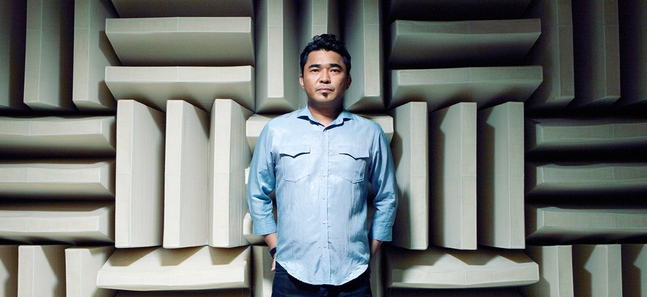
Posted: Tue Jul 10 2012
If you've spent more than a few months on the club circuit in Tokyo, there's a good chance that you've run into Takkyu Ishino. One of Japan's most famous techno artists, the 44-year-old DJ and producer is also perhaps its most ubiquitous: it's a rare weekend when he doesn't play somewhere around the capital, and that's to say nothing of his countless festival appearances, the annual Wire mega-raves that he organises each August, or his parallel career as producer and vocalist for enduring dance-pop act Denki Groove. Ken Ishii might be better known overseas, but Ishino rules the roost at home.
This weekend, he'll be rubbing shoulders with a rather different crowd when he headlines at the latest Tokyo Fashion Fuse, a haute couture hoedown where the lineup also includes catwalk models and Ducati motorbikes. (In a nice bit of symmetry, Ishii guested at the same event last year.) Then he's off on what looks set to be a typically hectic summer, including Denki Groove appearances at Fuji Rock, Rising Sun Rock Festival and his own Wire12. When we meet Ishino to talk about all of this (and a few other things), he's friendly but every bit as to-the-point as his DJ sets and production work: chugging Red Bull, he talks at such a rapid clip that the interview is done in just over ten minutes.
Kraftwerk, The Stone Roses and New Order are all playing at Japanese festivals this summer. Were they important influences for you?
I'm a big fan of '80s new wave and electropop – Kraftwerk, New Order, and also Depeche Mode. Before I started DJing, I was playing knock-offs of OMD and Depeche Mode in a duo with a friend of mine; that's how I got started in music.
Did you release any albums?
No, I was still in high school then – I must have been about 16. Synthesizers were still really expensive then and I couldn't afford one, so I just used a cheap keyboard that I had at hand instead.
How do you feel when you see bands from that period reuniting?
I feel nostalgic at first, but when I actually see them I'm often disappointed. You realise how much time has passed, or how dated the music sounds now. I'll end up wishing I hadn't gone at all. [Laughs]
You celebrated the 10th anniversary of your monthly Sterne parties at Womb recently. What's changed since you started out?
The biggest change has been the crowd. Sure, there were other parties when we started, but compared to now there weren't that many; these days, there are dozens of techno parties every weekend, right? That's been the biggest change. Naturally, the crowd's going to change over the course of ten years, so we get new people coming and people who stop coming. I think that turnover of people is what's allowed us to keep going for so long – it's a good thing.
Do you think techno is any more or less popular now than when you started?
I haven't really felt any increase or decrease. Like I just said, when people stop coming, new people always come in their place. I don't think there's been any real change in the overall number of people.
You're going to be appearing at Fuji Rock, Rising Sun and Wire with Denki Groove this year. Do you have anything special in store?
We're starting rehearsals next week, so we haven't decided yet. We've got a new member, though.
Who's that?
This artist called Agraph is helping us out. These are going to be the first festival dates we've played since he joined, so I think it'll feel a bit different from the shows we've done before.
How long has it been since you last played at Wire?
[Checks with label staff] Four years. We've just put out the first Denki Groove single in quite a while, so I guess it makes sense to play.
You've said in other interviews that you keep Denki Groove and your DJ activities separate. Seeing that Wire ties in with the latter, how does it go down when Denki Groove play there?
When we play at Wire, we do it a little differently from your normal Denki Groove set. There aren't many vocals, and the set's more tailored to the event. It's like an exclusive: you won't see that set anywhere but at Wire.
It's harder?
Right. It's more danceable.
Who are you most excited about at Wire this year?
Robert Hood – it's the first time he's played.
The event you're due to play at this weekend, Fashion Fuse, was headlined by Ken Ishii last year. What's your relationship like with him – do you see him as a friend or a rival?
[Looks shocked] He's a friend. [Laughs] We've both been doing this for ages, and he plays at Wire every year. He's always doing his own thing, and I've got a lot of respect for that.
The two of you have been at it since the early days of the Japanese techno scene. What was it like back then?
It wasn't as big as it is now – there was a scene, but it was pretty small. There'd be parties at Eleven – or Yellow, as it was called then – on Thursdays, and only a handful of other events.
Were they mostly just playing house at Yellow then?
Right, there were a lot of those parties; Fridays and Saturdays were always house. Techno got Thursday nights. That was when trance started to come up, too, but it normally got labelled as techno, so the two scenes got lumped together. Then the techno scene got bigger, the trance scene got bigger, and they became separate. That must have been in the mid-'90s.
What kind of techno was popular in Japan then?
Dave Clarke, the Harthouse label rom Germany. A lot of German techno. When you listen to it now, it sounds really fast.
Do you still listen to that stuff much?
I'll listen to it occasionally. I did a classic techno set at Air a few weeks ago, actually.
How did it go?
It was fun. Definitely an older crowd. [Laughs] When I looked at the dancefloor, I'd see faces I used to see back in the day. It was fun but also kinda embarrassing. Even though I chose what to play, I'd think, 'I can't believe I used to dance to this.'
Are there tracks from back then that still blow you away now?
Yeah, there are loads. When I was doing that classic techno set, I dug out a lot of tracks that I could use. I had a two hour set, but that wasn't enough time to play everything – I still had a load of stuff left over. Mind you, I think I'd only want to do it once a year. If I did that all the time, I'd just be treading water.
Since you're appearing at Fashion Fuse, do you have any fashion tips for our readers?
Er… I'm not really a stylish kind of guy. [Laughs] I don't think I'm in a position to give fashion advice to other people.
Are you going to feel self-conscious when you're there, then?
I don't think I look that bad! [Laughs] I guess I'll wear something that isn't too embarrassing.
Tokyo Fashion Fuse, July 15, Womb
Tweets
- About Us |
- Work for Time Out |
- Send us info |
- Advertising |
- Mobile edition |
- Terms & Conditions |
- Privacy policy |
- Contact Us
Copyright © 2014 Time Out Tokyo










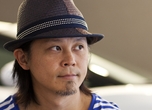
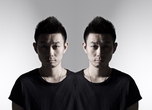
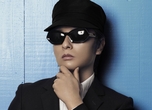
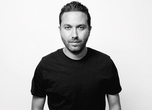
Add your comment